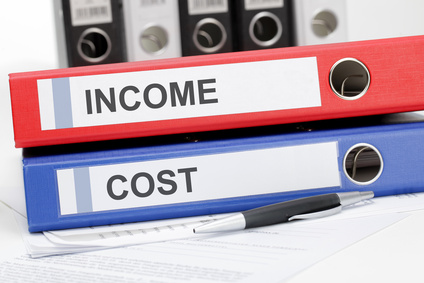As a self-employed person do you ever wonder what expenses you are allowed to deduct from the income you earn? Do you worry that you are not claiming everything you could? Or perhaps worry that you are claiming things that you shouldn’t?
So what sort of things could you claim against your income? HM Revenue and Customs use a very important phrase to describe allowable expenses – they must be “wholly and exclusively for the purpose of the business” – so if you apply this to each of your costs you will be able to identify what is allowed and what is not.
However there may be some cases where you think a cost is “wholly and exclusively for the purpose of the business” but it is not allowed. An example of this would be a speeding or parking fine. Whilst the fine may have been incurred whilst on a business journey they are definitely not allowed by HMRC as a business expense and therefore should be excluded from your costs.
A further example of an expense which is not allowed is lunch. Everyone needs to eat and therefore HMRC will not allow the purchase of lunch to be set against income except if you are on a business journey and this is outside of your normal pattern of work.
Many newly self employed will have incurred start up costs. These are considered to be pre-trading costs and therefore are allowed as business expenses and should be brought into the accounts from the start of trading.
A shock to many newly self-employed people is that entertaining is not an allowable deduction. Taking your client or a potential client for lunch or out for coffee is not tax deductible. Neither is work clothing which is not specifically for the job that you do. Overalls, clothing with a logo and protective clothing are all allowed if they are appropriate to the work you do but a suit to go to work in or shoes that you can wear anytime are not allowed.
Training too is limited. You can do a training course to update your skills and claim this as tax deductible but you cannot gain a qualification in another skill and deduct this cost from your income.
If you work from home either fully or partially you can claim a fixed amount dependent on the number of hours you work there or you can calculate a specific cost based on a number of different factors.
Motoring expenses can be claimed as business mileage (you will need to keep a record) at 45p per mile up to 10,000 miles or you can claim specific motoring costs for a vehicle remembering to calculate how much is business use and how much is personal as you can only claim the business percentage.
However you prepare your accounts you should know what is allowed and what is not and retain the supporting documentation for a minimum of 6 years. The documentation can be retained in paper format or electronically as long as it can be found easily and is legible.
HMRC has more information about keeping your accounts records here and allowed and disallowed expenses here.
Leave a Reply